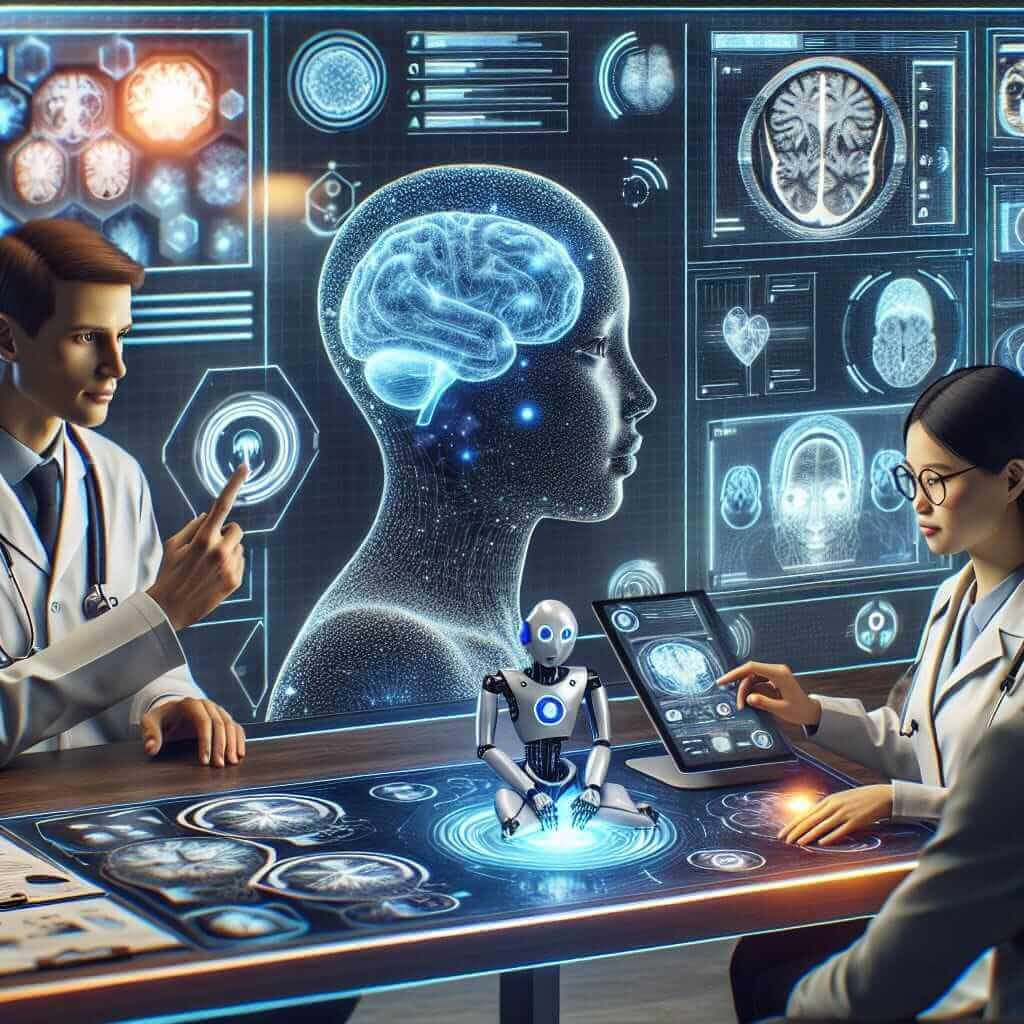The IELTS Reading section is a critical component of the exam, assessing candidates’ ability to understand and interpret various texts. Understanding how topics like “How is AI being used in mental health care?” might appear in the Reading section can be beneficial for effective preparation. This particular topic has been gaining prominence due to the increasing integration of technology in healthcare. Given its relevance, it may very well appear in future IELTS exams.
Main Content
Reading Test Sample: AI and Mental Health Care
Passage (Medium Text)
Artificial Intelligence (AI) is transforming many industries, including mental health care. The utilization of AI in this field encompasses various applications, from diagnostics to treatment and patient support.
AI’s primary application in mental health care is through diagnostic tools. Machine learning algorithms can analyze patient data, including medical history, behavioral patterns, and even social media activity, to identify signs of mental health issues such as depression, anxiety, or bipolar disorder. This early detection is crucial as it can lead to timely intervention and treatment.
Moreover, AI-powered chatbots are becoming a valuable tool for providing immediate support to individuals experiencing mental health crises. These chatbots can offer counseling, suggest coping mechanisms, and even triage cases to direct individuals to human therapists when necessary.
Another significant application of AI is in personalized treatment plans. Machine learning models can process vast amounts of data to determine what treatments are most effective for individual patients based on their unique needs and responses to previous therapies. This personalized approach can improve the efficacy of mental health treatments and enhance patient outcomes.
However, the implementation of AI in mental health care comes with challenges. Issues such as data privacy, the need for large datasets to train AI algorithms, and the potential for bias in AI models must be addressed to ensure ethical and effective use of these technologies.
In conclusion, while AI has the potential to revolutionize mental health care by improving diagnostics, providing immediate support, and personalizing treatments, it is essential to navigate the ethical and practical challenges it presents.

Questions
Multiple Choice
-
What is one of the primary applications of AI in mental health care?
a. Creating new medications
b. Diagnosing mental health issues
c. Training new therapists
d. Managing health insurance -
How do AI-powered chatbots assist in mental health care?
a. By offering financial advice
b. By providing immediate support and counseling
c. By conducting medical surgeries
d. By creating social media content
Identifying Information (True/False/Not Given)
- AI can analyze social media activity to help diagnose mental health issues.
- AI is being used to replace human therapists entirely.
Matching Information
-
Match the following statements with the correct application of AI:
- Personalized treatment plans
- Diagnostic tools
- Immediate support
A. Machine learning models process patient data.
B. Chatbots provide counseling and triage.
C. AI analyzes medical history and behavioral patterns.
Answer Keys
- b. Diagnosing mental health issues
- b. By providing immediate support and counseling
- True. AI can analyze social media activity to help diagnose mental health issues.
- Not Given. The passage does not state that AI is being used to replace human therapists entirely.
-
- Personalized treatment plans: A. Machine learning models process patient data.
- Diagnostic tools: C. AI analyzes medical history and behavioral patterns.
- Immediate support: B. Chatbots provide counseling and triage.
Common Mistakes in Reading
- Skimming too quickly and missing key details.
- Confusing similar-sounding options in multiple choice.
- Not understanding the nuanced meanings of “True,” “False,” and “Not Given.”
Vocabulary
- Diagnose (verb /ˈdaɪ.əɡ.nəʊz/): Identify the nature of (an illness or problem) by examination.
- Intervention (noun /ˌɪn.təˈven.ʃən/): The action of becoming intentionally involved in a difficult situation.
- Therapy (noun /ˈθer.ə.pi/): Treatment intended to relieve or heal a disorder.
Grammar
- Passive Voice:
- Form: [subject] + [form of “be”] + [past participle] + [optional: by + agent]
- Example: “AI is being used to diagnose mental health issues.”
Advice for High Reading Scores
- Practice skimming and scanning to quickly locate information.
- Familiarize yourself with common IELTS topics, such as technology in healthcare.
- Expand your vocabulary, especially on current trends like AI in mental health.
- Take practice tests under timed conditions to build speed and accuracy.
- Review your mistakes thoroughly to understand where you went wrong and how to improve.
Studying topics like AI in mental health care not only prepares you for the IELTS Reading section but also keeps you informed about cutting-edge advancements in technology and healthcare.